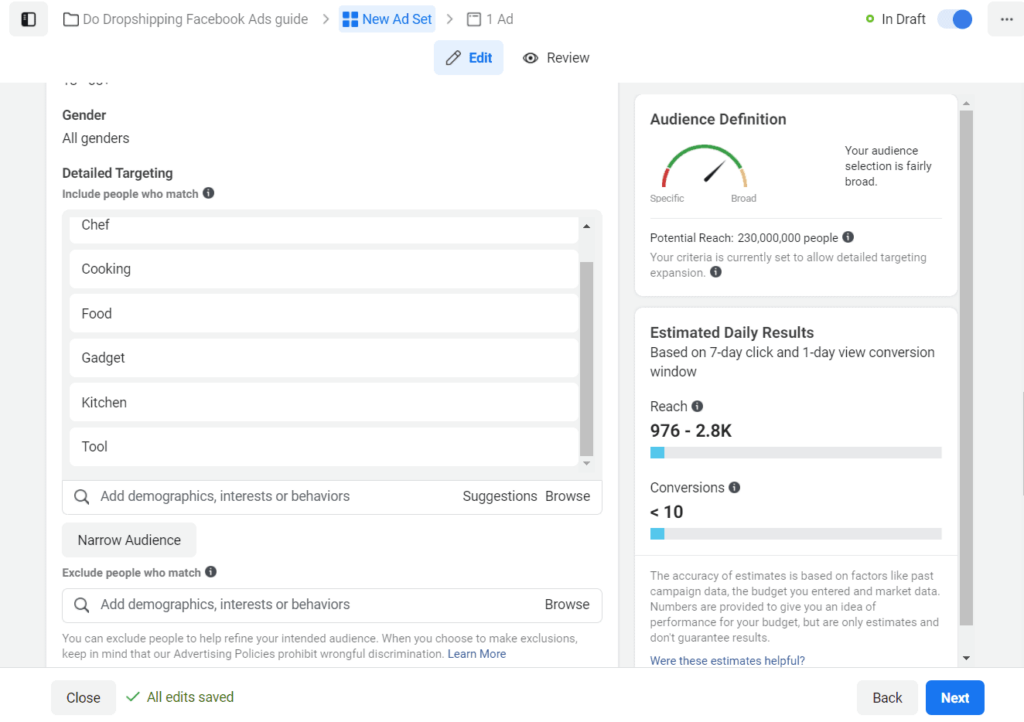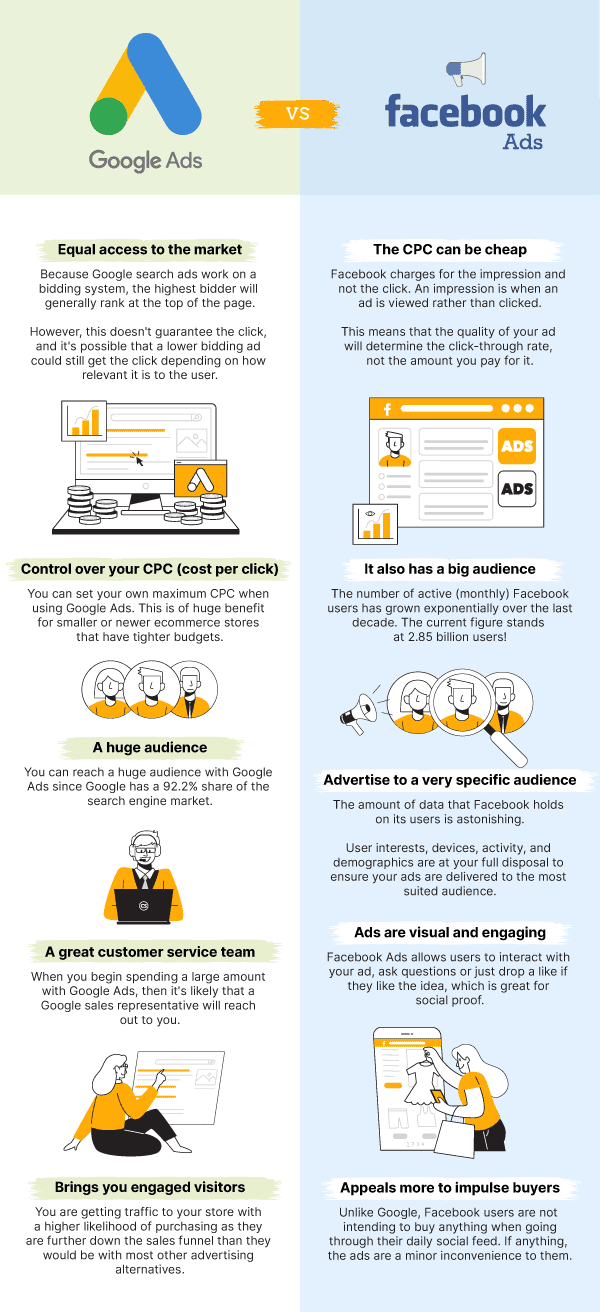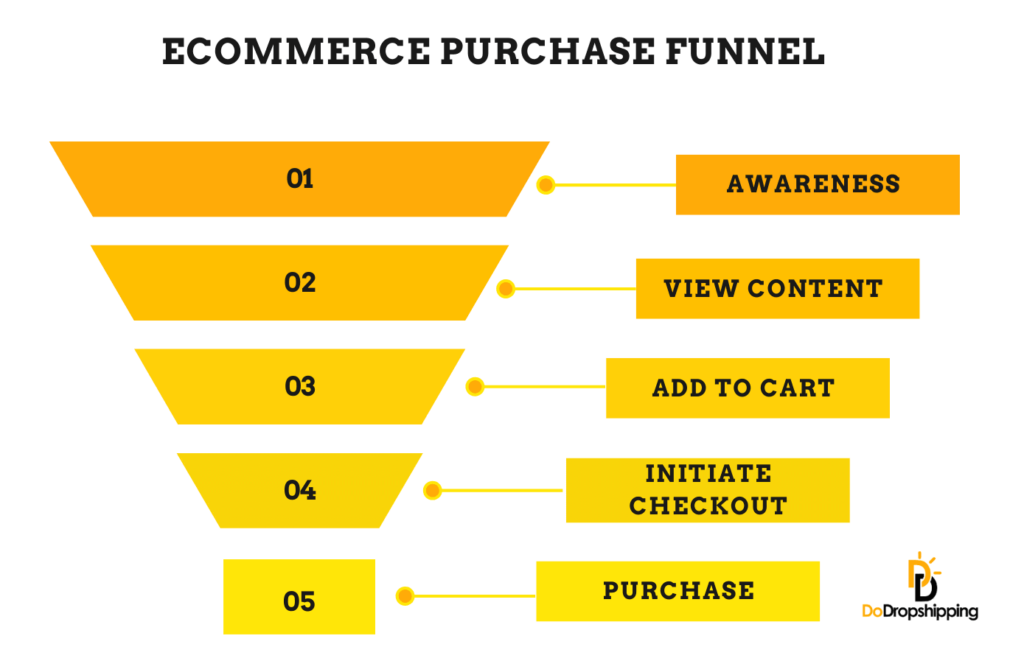If you've just got started on your ecommerce store, then you've probably run into your first major dilemma on advertising; what's better between Google and Facebook Ads?
Well, read on because, in this article, we go through the main differences and advantages between the two platforms.
The main difference between using Google Ads and Facebook Ads for your ecommerce store is that Google Ads brings you engaged visitors and gives you control of your CPC. In contrast, Facebook Ads appeal more to impulse buyers, and they charge per impression.
This article should give you enough information to make your own decision on which one better suits your own business needs!
What are the main differences between Google and Facebook Ads?
Whilst Google and Facebook ads may, on face value, appear to be direct competitors to one another, advertisers use them in very different ways.
Let's go over them below:
Google Ads
Google search ads are a wonderful solution to a product or service already established and that people generally know about to search for it in the first place.
Google search ads focus on the targeting of keywords as well as text-based ads. Advertisers using Google Ads bid on keywords, with the highest bidder typically being at the top spot.

It's important to note here that the highest bidder doesn't guarantee the click. Having a relevant and engaging ad will play a large role in driving the appropriate traffic to your store at a lower cost per click (CPC) than your competitors.
Google also offers some other advertising methods such as display ads, video ads, and Google Shopping, to name but a few.
Facebook Ads
Facebook Ads are more preferred when the advertiser wants to generate interest in the product or service offered. In some cases, what's being sold, the viewer may not even know it exists.
Facebook is a potent analytical tool that understands user behavior incredibly well. Because of this, when using Facebook Ads, the advertiser can target user interests with pinpoint precision.

As Facebook is the largest social media platform out there with 2.7 billion users, it is a huge opportunity for ecommerce stores to reach out and show the world they are here.
So now that we have gone taken a look at both advertisement platforms, let's dig a little deeper into the advantages of using them.
But first, if you're in a hurry or just want to see an easy to view overview; take a look at our infographic below:

Sounds good, right?
If so, let's dive into it more in-depth now:
The advantages of using Google Ads
There are many advantages to using Google Ads that will greatly benefit your ecommerce store, so let's begin with that!
Equal access to the market
Because Google search ads work on a bidding system, the highest bidder will generally rank at the top of the page.
However, as mentioned earlier, this doesn't guarantee the click, and it's possible that a lower bidding ad could still get the click depending on how relevant it is to the user.
This truly levels the playing field for advertisers on low budgets versus those with deep pockets, as ad relevance is equally as important as your bidding power.

The factors which play the largest parts in determining your ad ranking are a combination of your bid and the quality score of your ad.
This subject is worth reading into a little more should you decide to go with Google Ads. It can be quite a deep subject worthy of an article of its own.
Control over your CPC (cost per click)
As we just discussed, you set your own maximum CPC when using Google Ads. This is of huge benefit for smaller or newer ecommerce stores that have tighter budgets.
You can additionally set the maximum you would like to spend per day on ads. Again, it provides a great level of control, and once you get a rough idea that x amount of clicks will generate x sales, you can then look at scaling your business.

You can theoretically set the maximum bid to 1 cent per click if you wish; however, the chances of getting traffic on such a low bid would be meager unless you have virtually no competition.
We have an article with much more information on setting the right Google Ads budget for ecommerce stores.
A huge audience
Anyone with access to the internet recognizes Google as the main search engine, so much that the term ‘Googling' has become normal terminology. They boast an astonishing 92.2% of the search engine market share at the time of writing this.

This means to you as a prospective advertiser that there really is no ceiling should you want to scale your business to an international level when using Google.
A great customer service team
When you begin spending a large amount with Google Ads, then it's likely that a Google sales representative will reach out to you. Of course, their sole purpose is to get you to spend more with them, but they do so in a constructive and non-pushy way.
They will offer great tips on refining your keywords, scaling your business, and any other technical issues which you may be having.
Your assigned representative will be your go-to for any issues relating to their services, and you will usually be assigned a dedicated rep which adds a nice personal touch.
If they cannot help you with a specific problem, they are always happy to at the very least point you in the right direction.
Customer service is something that Facebook really lacks. Tickets with them can sometimes take months to resolve, and speaking to an actual person is near impossible.
Brings you engaged visitors
People using the Google search engine to find your product or service are already engaged, which may also have buyers' intent.
What this means is that when using Google Ads, you are getting traffic to your store with a higher likelihood of purchasing as they are further down the sales funnel than they would be with most other advertising alternatives.

This will not only ensure a higher quality of traffic but reduce your cost per conversion overall.
If you're interested in reading more about the reasons to use Google Ads, check out our article here.
The advantages of using Facebook Ads
Perhaps you first want to generate some interest in your ecommerce store; Facebook ads may be a more suitable solution for you. Let's take a look at some of the advantages of using Facebook ads.
The CPC can be cheap
Facebook charges for the impression and not the click. An impression is when an ad is viewed rather than clicked.
This means that the quality of your ad will determine the click-through rate, not the amount you pay for it.

Because of this, when you put your ad before the appropriate audience and relevant to the user, your cost per click can be considerably cheaper than Google.
It also has a big audience
The number of active (monthly) Facebook users has grown exponentially over the last decade. As of the first quarter of 2021, the current figure stands at 2.85 billion. To put this into perspective, the population of the world is 7.6 billion.

There are very few limitations outside of advertisers' own financial situation; the prospective customers are most certainly there.
Advertise to a very specific audience
As just mentioned, Facebook has a huge audience. But the amount of data that Facebook holds on its users is astonishing.
User interests, devices, activity, and demographics are at your full disposal to ensure your ads are delivered to the most suited audience.
Facebook also provides a wealth of data on your ads being delivered to help you trim off the poor-performing ads and targeted interests.
If you're interested in learning how to find your target audience on Facebook, check out this other article here.
Ads are visual and engaging
Facebook Ads allows users to interact with your ad, ask questions or just drop a like if they like the idea. You won't always get a sale, nor a click with Facebook, but really, when is that ever guaranteed?

Just be prepared to hear what they say
What you Facebook will always deliver on with absolute consistency is social proof.
This is how your would-be customers are reassured that the business is both legitimate and endorsed by others.
Appeals more to impulse buyers
Unlike Google, Facebook users are not intending to buy anything when going through their daily social feed. If anything, the ads are a minor inconvenience to them.
On the flip-side, there's also a chance that your business and product may not be known for users to use Google search for. In this case, Facebook Ads would be the perfect solution for you to create that interest in the first place.
Facebook also knows how interested their users will be in your product or service based on their interests and engagement with your ads. Hence, impulse purchases are definitely a possibility. You can also target impulse and engaged shoppers.

If you’re interested in reading more about the reasons to use Facebook Ads, check out our article here.
Not decided yet?
An additional point to consider is that you may not necessarily need to choose between the two and may indeed decide to use both, which is also a viable option as many large brands choose to do.
As mentioned earlier, they work in different ways. You could use Facebook for generating interest and Google to pull them further down the sales funnel.
To draw a conclusion
So that was quite a lot to take in, right?
The main thing to take away from this is that whilst both Facebook and Google are gigantic advertisement platforms, they serve quite different purposes.
Google will bring higher-quality traffic in general with more engaged users and a higher conversion rate overall. It's also a fantastic way to control how much you spend on traffic to your store.
Facebook knows their users very well (some would say too well) and is a powerful platform to drive cheaper traffic and build social proof, but is more likely to generate impulse purchases.
So which one is the best for you? The answer to this depends entirely on your business needs. Fortunately, you should now have enough information on them both to make this decision.
Don't forget to drop us a comment below to let us know which one you've chosen and why.













